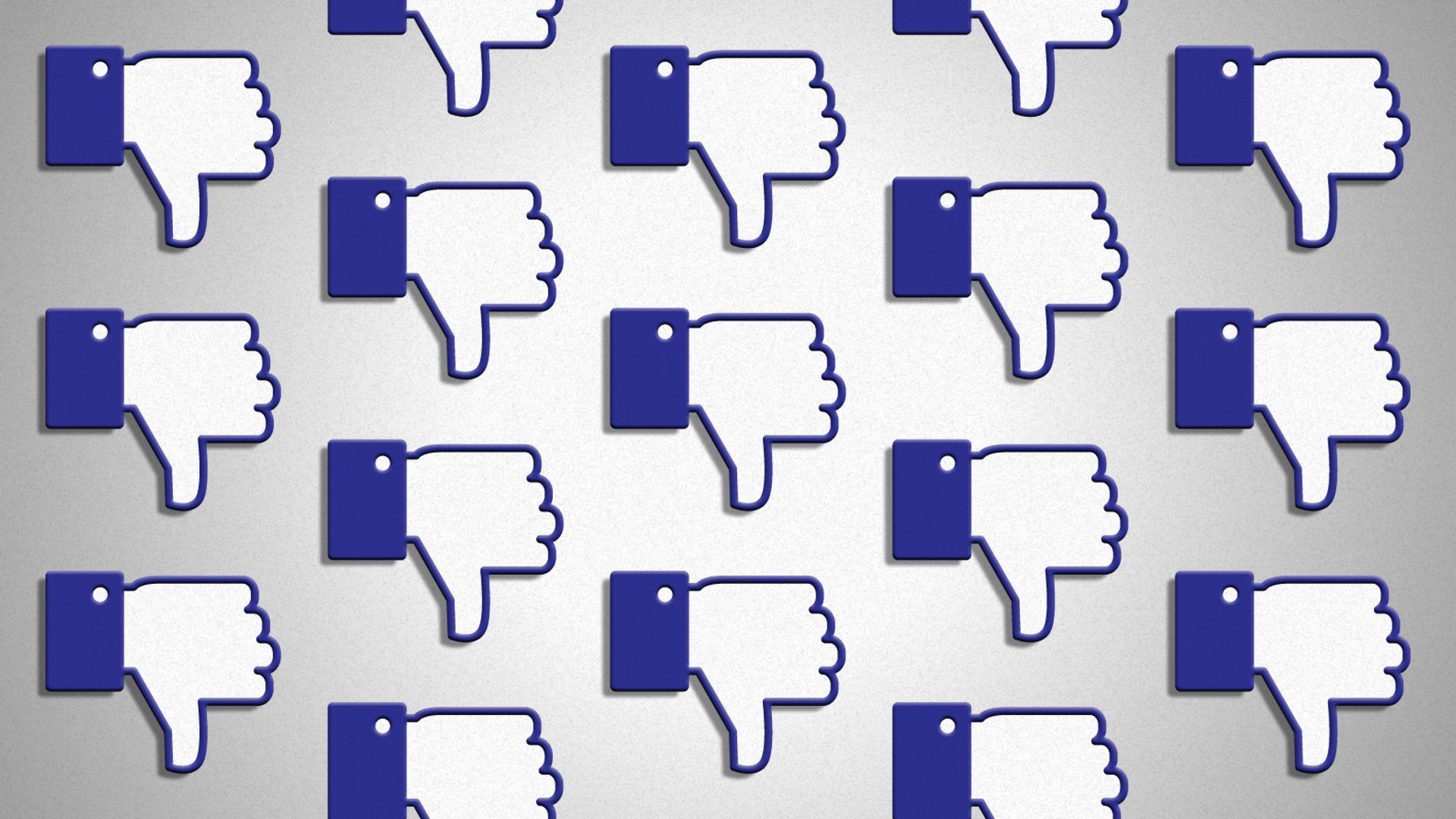Sara Fischer, author of Media Trend

Illustration: Megan Robinson/Axios
In a post to staffers Saturday obtained by Axios, Facebook VP of global affairs Nick Clegg warned the company that worse coverage could be on the way: “We need to steel ourselves for more bad headlines in the coming days, I’m afraid.”
Catch up quick: Roughly two dozen news outlets had agreed to hold stories based on leaked materials from Facebook whistleblower Frances Haugen for Monday publication — but the embargo fell apart Friday night as participating newsrooms posted a batch of articles ahead of the weekend.
Why it matters: Confusion and intrigue about the "Facebook Consortium," a group of news outlets that were brought together to report on the same set of leaked documents, known as "The Facebook Papers," has quickly become a story itself.
Driving the news: Clegg's memo warned that the new coverage would likely "contain mischaracterizations of our research, our motives and where our priorities lie," and said employees must “listen and learn from criticism when it is fair, and push back strongly when it is not.”
“But, above all else,” he told Facebook staff, “we should keep our heads held high and do the work we came here to do."
In the note, Clegg references investments made by the company in safety and security, including efforts to boost voting and vaccinations rates. “The truth is we’ve invested $13 billion and have over 40,000 people to do one job: keep people safe on Facebook,” he wrote.
How it happened: Shortly after Haugen appeared on CBS News' "60 Minutes" on Oct. 4, reporters began reaching out to her for interviews and comment, according to two sources familiar with the process.
Haugen had been getting legal and communications help from Harvard Law professor and attorney Larry Lessig. Lessig retained services from former Obama administration communications official Bill Burton through Burton's strategic communications firm Bryson Gillette.
Burton's team then reached out via email to a group of reporters across several newsrooms asking them if they would want to receive a copy of some of the leaked documents from Haugen, according to two sources.
Lessig and Burton's involvement was first reported by Politico, which also reported that eBay co-founder Pierre Omidyar was providing support for Haugen.
Participating newsrooms include Associated Press, Reuters, The New York Times, The Washington Post, CNN, NBC News, CBS News, USA Today, Financial Times, The Atlantic, Fox Business, NPR, Bloomberg, Politico, Wired, Casey Newton's Platformer newsletter, Le Monde and German newspaper Süddeutsche Zeitung, in addition to a few other European outlets, according to a list obtained by Axios.
The Wall Street Journal was not part of the consortium, as it had already obtained the leaked documents from Haugen, leading to its blockbuster series called "The Facebook Files."
The outlets that shared the documents began communicating via Slack, per a Friday story in the Information with initial details on the consortium.
Participating newsrooms collectively drew up a set of terms, including publishing all stories based on the leaked documents at the same time early Monday morning.
They also agreed not to share the documents with Facebook or to go to the company for comment until a few days before the publish date.
Reporters received the documents on Oct. 10, according to one source, and some outlets contacted Facebook afterward.
Facebook wanted to learn more about the content of the leaked documents, so about a week later, on Oct. 18, Facebook's VP of communications, John Pinette, sent a cryptic tweet from Facebook's public relations Twitter account, saying "to those news organizations who would like to move beyond an orchestrated ‘gotcha’ campaign, we are ready to engage on the substance."
That got Facebook more information, but it never gained access to any of the actual documents, per two sources familiar with the situation. For the public outside of the consortium, Facebook's tweet was the first they'd hear of the effort.
Where things got muddled: On Friday, The Wall Street Journal published a story referencing the role Facebook played in the Jan. 6 insurrection based on documents it had obtained from Haugen.
Those documents were a part of the leaked set given to the consortium, so the consortium lifted its embargo on that material, opening the door for stories from The New York Times, CNN, NBC News, Bloomberg and others. New York Times reporter Sheera Frankel tweeted confirming that scenario.
What to watch: The consortium's organizers aimed to amplify findings from the leaked documents by having many news organizations report on them simultaneously, creating a big splash.
The public should expect to see much more reporting based off the documents in coming days and weeks, according to sources.
Sources also told Axios that some news outlets have gotten the leaked documents from members of Congress or committee staff, which has helped publications avoid potential liability for publishing illegally obtained material.
No comments:
Post a Comment